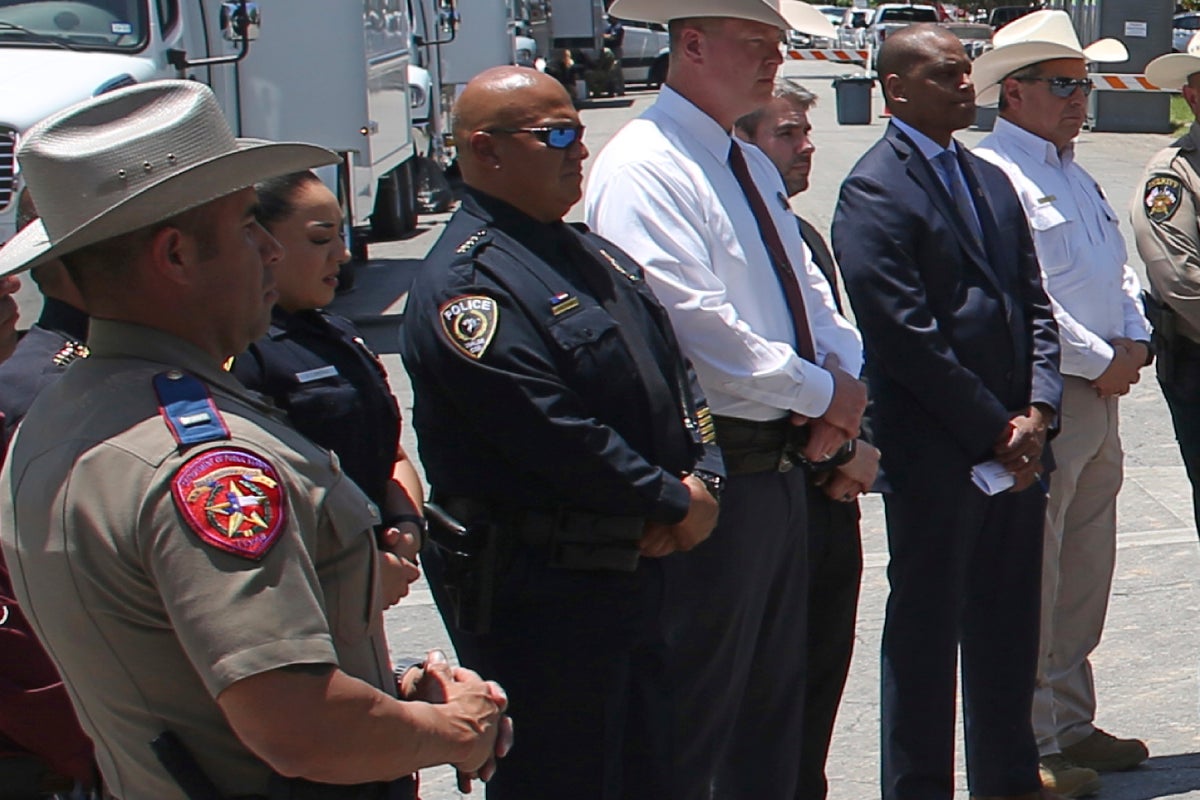
The city of Uvalde and its police department have reportedly hired a private law firm to fight public records requests from the press asking for body camera footage and other records from the mass shooting at Robb Elementary School.
The mass shooting last month left 19 students and two faculty members dead.
According to VICE News, the records the Uvalde police department is trying to keep out of reporters' hands include 911 calls, body camera footage, calls, emails, text messages, and criminal records.
The lawyers working for the private firm Denton Navarro Rocha Bernal & Zech argued that the records being requested could be "highly embarrassing" and cause "emotional/mental distress." They argue that the records are "not of legitimate concern to the public."
Texas Attorney General Ken Paxton will ultimately rule on which, if any, of the public records the city of Uvalde and its police force will be required to produce.
The Independent has reached out to the Uvalde police for comment.
According to the city, it has received 148 separate public records requests and is lumping them all together to try to fight having to fulfill them.
The revelation that the city and its police are trying to hide records comes on the heels of another argument from the Texas Department of Public Safety claiming that releasing body camera footage would allow criminals to study it for "weaknesses" in police responses to crimes.
Uvalde police waited outside a Robb Elementary School classroom for 90 minutes while an 18-year-old shooter murdered 19 students and two faculty members before being killed by a Border Patrol agent that ignored police commands and stormed it.
The Texas DPS also argued that the footage on the body cameras was "confidential."
Christopher Schneider, a professor of sociology at Brandon University who studies police body cameras, spoke to VICE's Motherboard about the institutions' refusal to comply with public record requests.
“They claim that the compilation of individuals’ criminal history is highly embarrassing information, which is a strange cover. The embarrassing information is the inept police response,” he said. “They have no problem using information like that against individuals of the public. The information disclosure needs to go both ways, if that’s the case.”
He said the city was likely trying whatever options it has to block the information in an effort to see what routes might be viable.
“The case that’s being made contains some particularly asinine stonewalling,” Mr Schneider said. “It seems like the city is throwing everything at the wall to see what sticks, and seeking a ruling to suppress this information from being released.”







